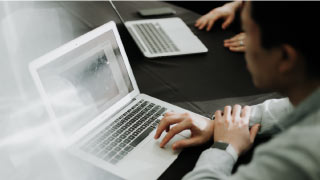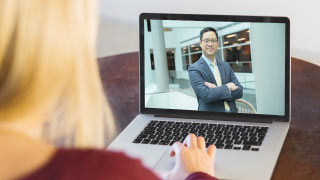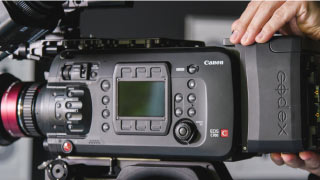Efficient and Secure Remote Deposition Technology
May 21, 2019
Remote Proceedings
Efficient and Secure Remote Deposition Technology
Depositions are one of the most critical elements of the legal process. The deposition is the primary way to get sworn testimony from witnesses. Considering that most cases settle, the deposition often is the only time that witnesses ever testify under oath. Without a doubt, depositions are key events in the life of a case.
Deploying a variety of free products in the task of capturing depositions has been done. These products come with significant security challenges and often create more work for those trying to adapt outputs for legal purposes.
Alternatively, more secure remote deposition technology developed for the industry provides legal teams and their clients with a variety of unique advantages. Remote deposition platforms designed specifically for lawyers and their clientele provide a more efficient and secure solution.
Free Technology and Remote Depositions
One of the most common questions we hear at Lexitas is whether we use Skype™ or WebEx™ technology for our remote depositions. The short answer is free, consumer-grade products help friend and friends stay in touch, but they don’t meet the needs of our attorneys for depositions.
When we created LegalView℠, we evaluated all the low-cost remote deposition options such as Skype, WebEx, GoToMeeting, etc. We chose not to use free, consumer-grade software because our clients need to:
- Connect via computers, mobile devices and videoconferencing endpoints.
- Save a copy of the video stream in an easy-to-use MPEG4 file.
- Manage a wide range of wildly-fluctuating bandwidth levels.
- Expect clear video and audio without any echoes.
- Traverse a range of networks, some of which have rigorous firewalls.
- Maintain the highest level of security and encryption.
- Share documents easily from the deposition and record document interactions.
WebEx and Skype have their place in the consumer market, but they fall short of meeting our clients’ requirements. On the other hand, dedicated remote deposition technology, with secure, streaming legal videography designed specifically for depositions and trials, provides an answer to reducing risk and inefficiency in this space.
Secure Remote Depositions
Security for remote depositions must be at the highest possible level. Protecting sensitive legal content by using a minimum standard of 128-bit AES encryption is the minimum standard of Lexitas.
The 128-bit encryption meets HIPAA standards for video transmission. It provides end-to-end protection – meaning that the video stream cannot be encrypted anywhere along its point of transit to ensure that only authorized participants can receive the stream. In addition, the video files must be encrypted at rest once they are saved.
Once each deposition is complete, the video is in a secure online repository with protection by 2048-bit RSA encryption along with any transcripts or exhibits from the matter. LegalView itself is protected by Lexitas’ portfolio of issued and pending patents.
Reduced Deposition Expenses
LegalView facilitates and records more than 10,000 depositions spanning every US state and 17 countries. Attendees connected through a variety of devices including computers, mobile devices, videoconferencing equipment and telephones. Some people actively participated in the depositions, while other authorized professionals merely observed the deposition proceedings.
This secure deposition platform enables attorneys, their expert witnesses and clients to reduce travel expenses, reduce wasted time, and streamline complex case schedules. In addition to reducing the expenses associated with flights, meals, and lodging, firms can also remove legal videography fees. Many firms pass along these cost benefits to their clients.
Professional Setup and Monitoring
Every LegalView remote deposition also includes the assistance of dedicated professional technicians. Before the deposition, they arrange the logistics, test bandwidth at each location, and ensure that participants are trained in the software and hardware.
These remote videoconferencing experts ensure transmissions, recordings and documents are of excellent quality. They provide Internet and firewall tests before each session, as well as full setup the day of the event.
Professionals monitor the deposition to ensure that the proceedings go as smoothly as possible.
Consumer vs. Professional-grade Depositions
While consumer-grade, low-cost remote deposition options like GoToMeeting and Skype are appropriate for personal applications, they do not meet modern remote deposition needs. This reveals a gap in the industry to experienced court reporting professionals.
The creation of professional-grade and secure remote deposition technology platforms have unique deposition’s in mind. With years of expertise in litigation industry best practices, exclusive remote deposition platforms make depositions and their documents more secure, efficient and accessible.
Related Resources

Articles
Court Reporting
Real Time Deposition Preparation Tips & How Realtime Depositions Work
Realtime court reporting is the live translation of a reporter’s stenotype writing into readable text.
Read More
Articles
Remote Proceedings
How to Achieve Dramatic Results with Remote Video Depositions
Now with advancements in remote video technology attorneys are increasingly opting to conduct remote depositions for several reasons.
Read More
Articles
Remote Proceedings
The Essentials of Video Depositions
In this media driven era, video depositions are a powerful tool that litigators can use to hold a jury's attention.
Read More
